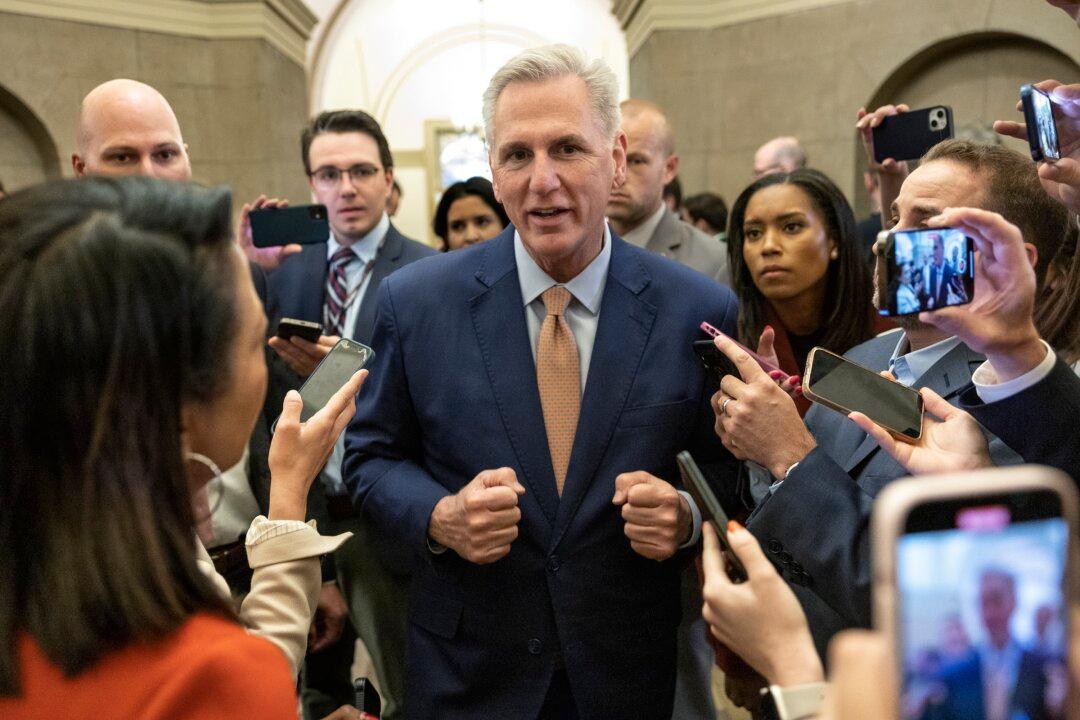House Speaker Kevin McCarthy (R-Calif.) is backing an effort in the House of Representatives to expunge the two impeachment proceedings against former President Donald Trump.
On Friday, Reps. Elise Stefanik (R-N.Y.) and Marjorie Taylor Greene (R-Ga.) introduced two different resolutions to expunge Trump’s 2019 and 2021 impeachments. The resolutions state an expungement would act as though the various impeachment articles against Trump “had never passed the full House of Representatives, as the facts and circumstances upon which such Articles were based did not meet the burden of proving the commission of ‘high Crimes and Misdemeanors,’ as set forth in section 4 of article II of the Constitution.”





